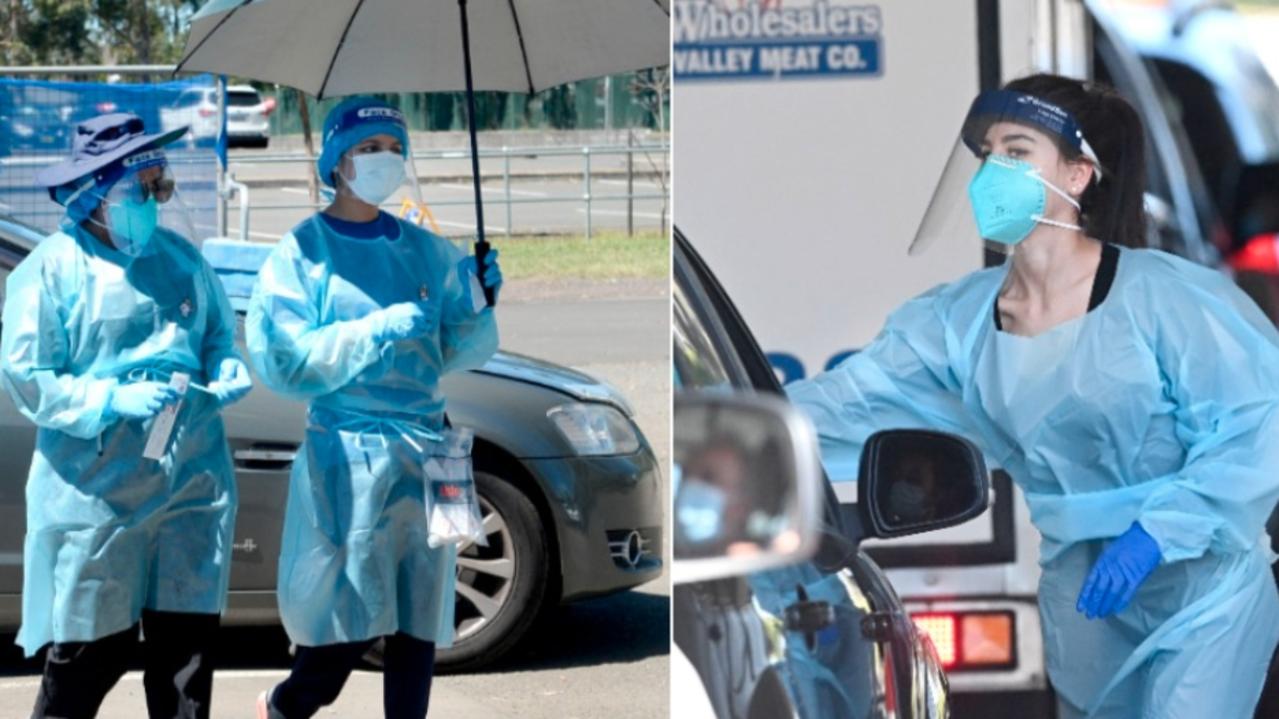The day timber choked the harbour beaches at Manly
When those who can remember the storm that battered the NSW coastline in 1974, what they tend to remember above all else is the destruction of Manly’s famous harbour pool.
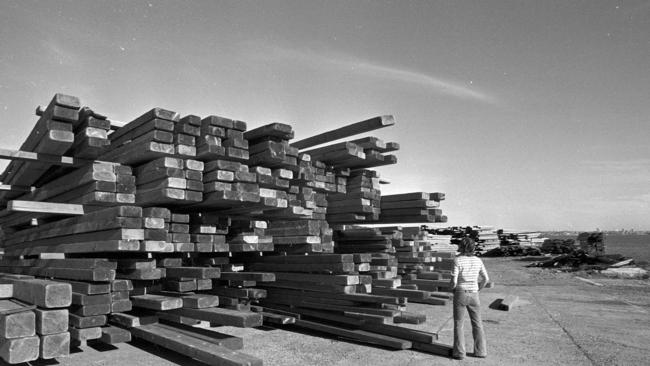
Nth Beaches
Don't miss out on the headlines from Nth Beaches. Followed categories will be added to My News.
When those who can remember the Sygna Storm that battered the NSW coastline in late May 1974, what they tend to remember above all else is the destruction of Manly’s famous harbour pool.

The storm took its name from the giant bulk carrier, the Sygna, which was driven aground on Stockton Beach, near Newcastle, at the height of the storm on May 24/25 and remains the largest shipwreck in Australian history.
But the Sygna was storm, while being the worst, was just one of a series of storms that lashed the coastline over several weeks, demolishing or damaging coastal infrastructure and threatening to undermine one of the largest beachfront unit blocks on the northern beaches coastline – The Marquesas at Narrabeen – which was saved by the dumping of a massive amount of rock to prevent the seas eroding the ground from beneath the twin buildings.
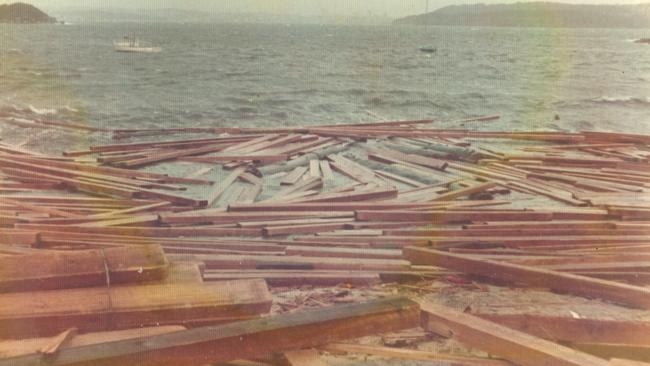
Also hit hard in one of the secondary storms was Bilgola Beach, which was severely eroded on the night of June 9, 1974.
The only loss of life during the storm was that of a crewman of a yacht, the Wotan, which capsized at the height of the storm near Terrigal, and the loss of two men on the state’s far north coast.
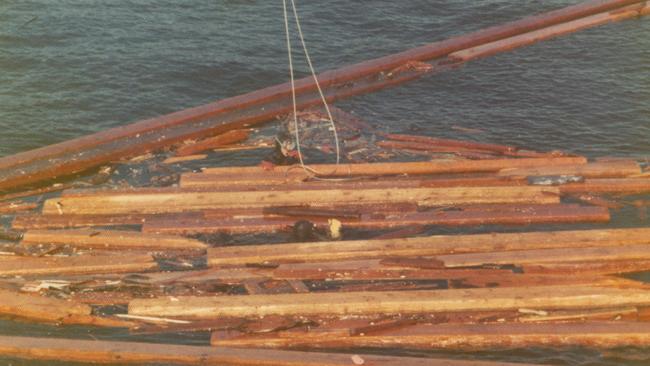
And were it not for the bravery of three members of the water police based at Church Point, the loss of life when the Wotan was lost would have been much higher.
But one of the most unusual events that occurred around the same time was the loss of hundreds of tonnes of timber from the deck of a ship entering Port Jackson and the sight of all that timber scattered on and around Store, Collins and Little Manly beaches.

The ship was the bulk carrier Star Kerry, which was entering the harbour during heavy seas on Sunday, June 9, and was turning to port to head down the harbour when thousands of cubic metres of oregon and hemlock slid off the deck hatches as the ship rolled to starboard.
If the prevailing weather had been from the north, the massive timbers, some of which were up to 15m long, would have wreaked havoc among the valuable pleasure craft and other boats anchored or berthed at Watsons Bay, Rose Bay and Double Bay.
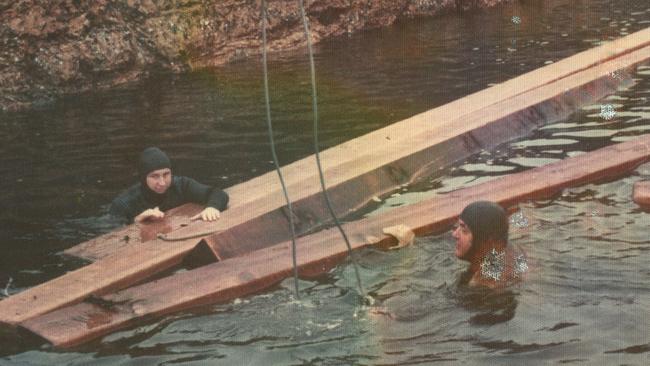
Instead, the weather was from the south and the massive timbers were pushed towards Store Beach, Collins Beach and Little Manly Beach.
The China Trading Company was appointed the major contractor to undertake the salvage of the timber.
The Australian-owned company began in 1972 but its directors, Graham and Barbara Todd, had been involved in import and export ventures with China since 1960.
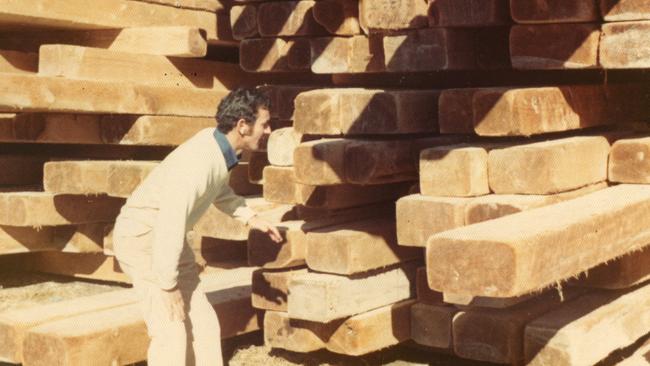
Mr Todd said he was living at West Pymble in June 1974 when one of his employees rang him to say a ship entering the port had lost its deck cargo of timber as it listed in the heaving swell near the Heads.
Mr Todd knew the owner of the Australian agent for the Star Kerry, so he rang him and asked if he could salvage the timber, knowing the company would want it salvaged as quickly as possible because it would be liable for any damage the massive logs caused as they floated around the harbour.
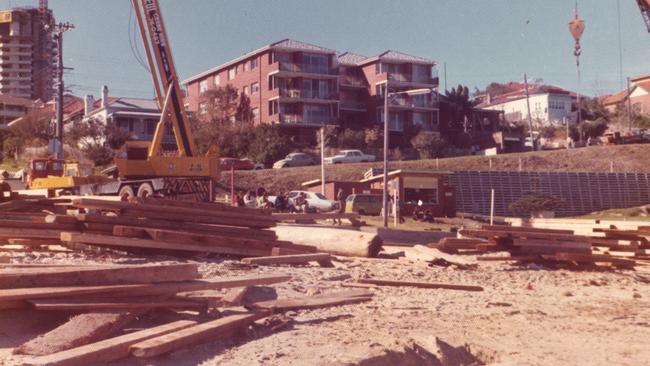
With a verbal contract in place, Mr Todd then rang the Maritime Services Board and told them he had the contract to salvage all the timber.
Then he rang various marine businesses around the harbour to organise tugs, barges and a massive sausage boom made from logs linked by strong chain that was anchored near Little Manly Point.
The sausage boom prevented any of the timbers trapped in the coves around Manly drifting back out into the harbour.
Mr Todd also rang the State Planning Authority to find out who owned Little Manly Point and told it he needed an emergency lease of the land so he could put the salvaged timber there.
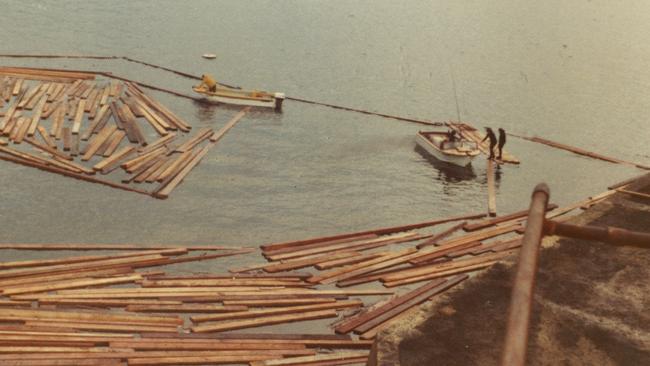
Little Manly Point had been home to the Manly Gas, Light and Coke Company since 1883 but the gasworks had been demolished in 1971, so the site was vacant.
Mr Todd also organised for crane trucks at accessible beaches to pick up any pieces of timber that washed ashore.
Mr Todd said the amazing thing about the whole operation was how the various government agencies and private companies responded so quickly and positively because they could see the need to remove the timber from the harbour as quickly as possible.
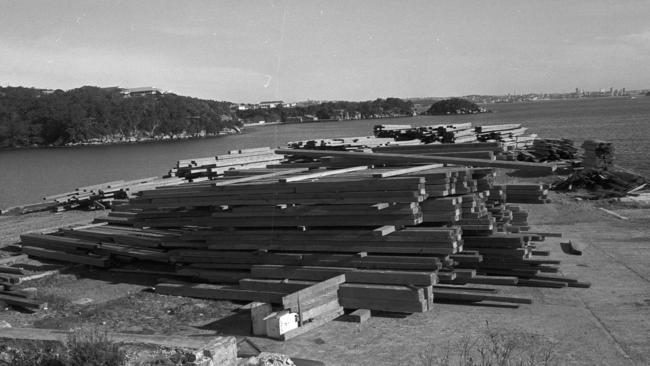
In fact, because of the quantity and size of the timber involved, the Maritime Services Board closed the port to shipping until the hazard had passed.
Given its central location, Little Manly Point proved a godsend for the salvagers and was where much the timber was stacked before being removed.
Eventually the salvaged timber was sold but Mr Todd said its value had been decreased by its immersion in salt water.
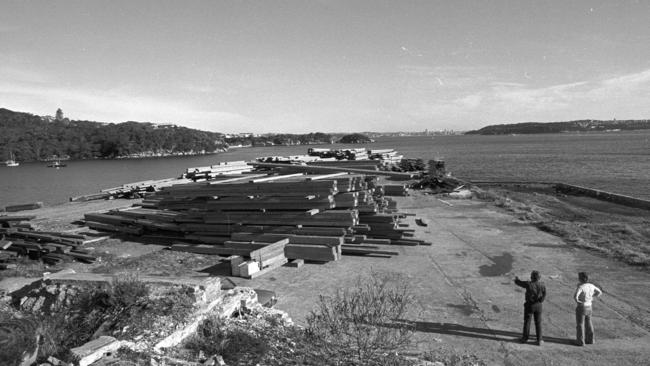
The incident was an inauspicious start to the career of the Star Kerry, which had been built in Japan for the Saturn Shipping Company and launched earlier that year.
She was being managed by the Australian agents of the Norwegian-based the Star Shipping Line at the time of the incident.
Later that year, the Star Kerry and her sister ship, the Star Kestrel, she was chartered for 15 years by BHP and in 1991 was sold to the Greek-owned Blue Light Shipping Company and renamed Seajoy.
In 1992 she was renamed the Aynur Kalkavan but in 1998 she was broken up at Gadani Beach in Pakistan, the third-largest ship-breaking yard in the world.


